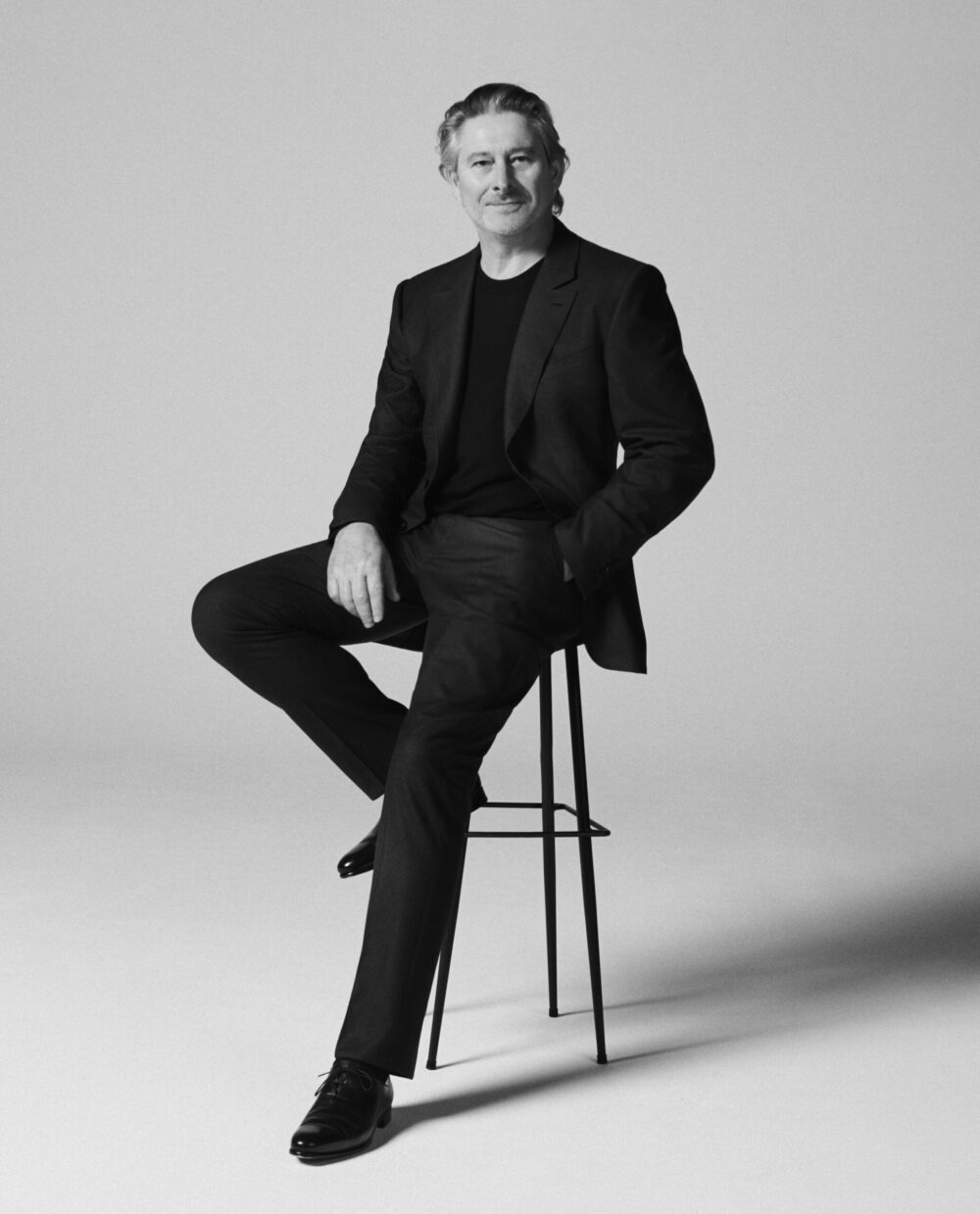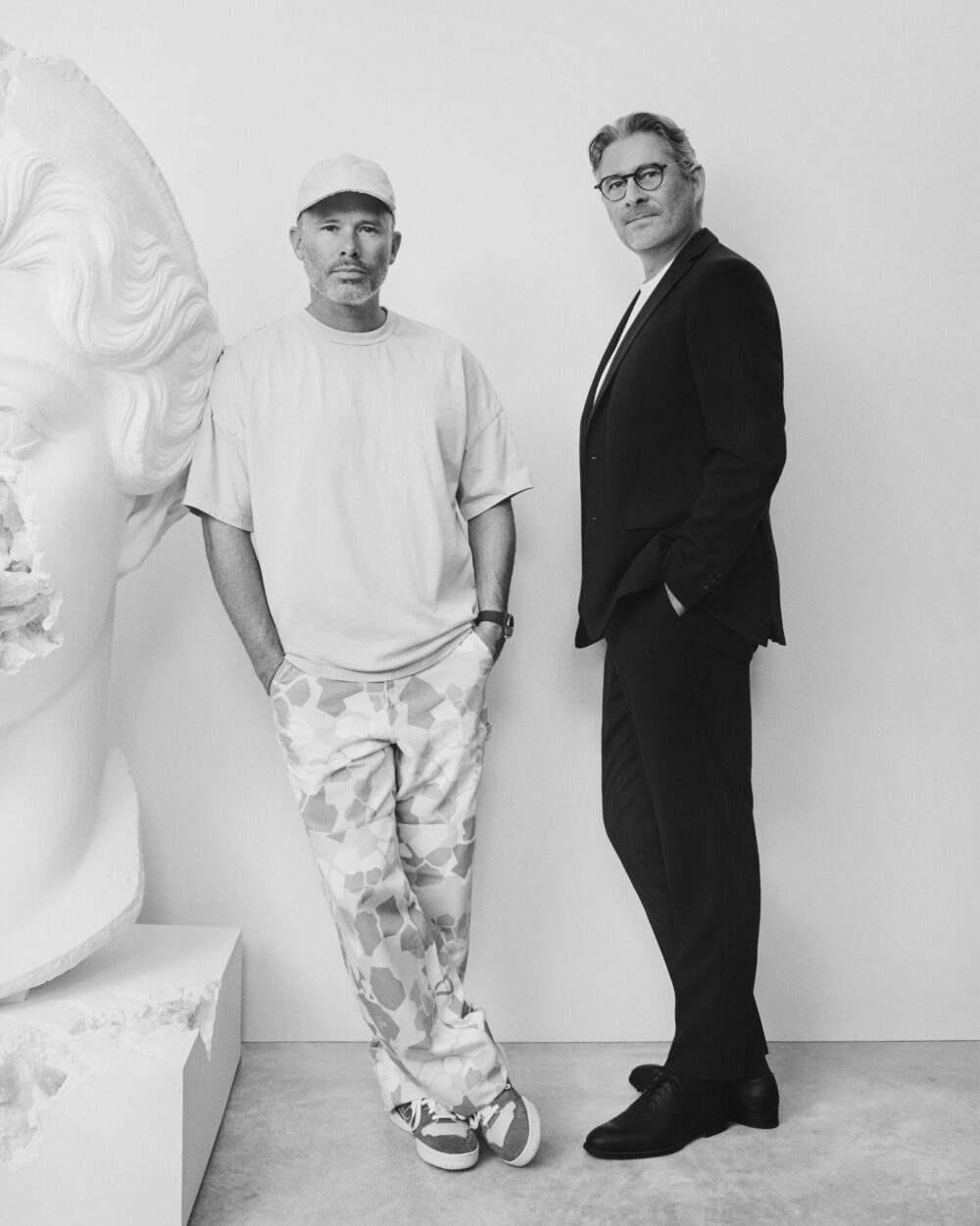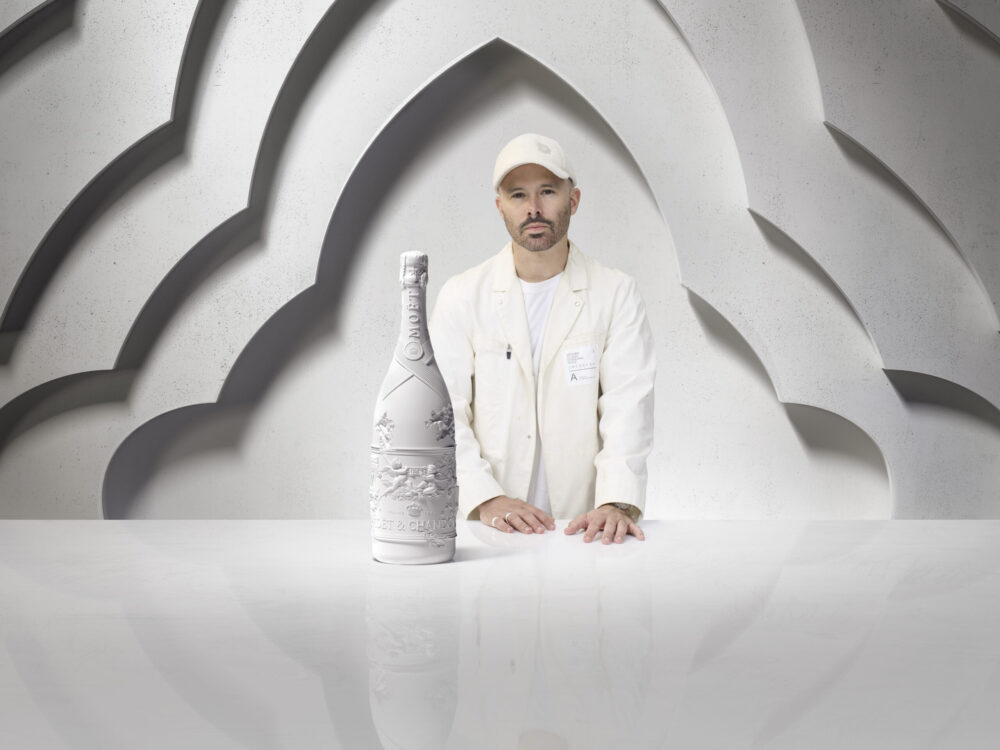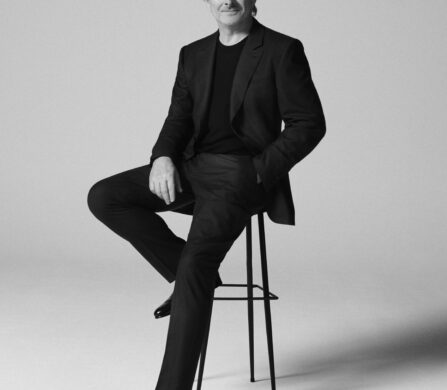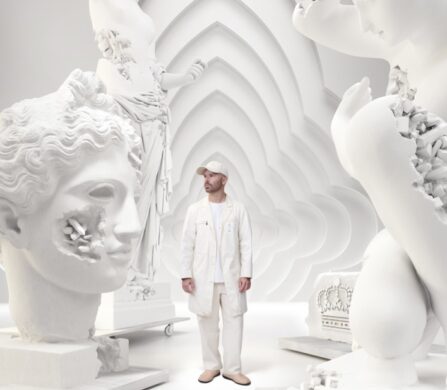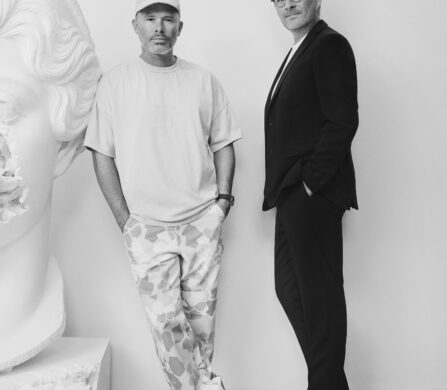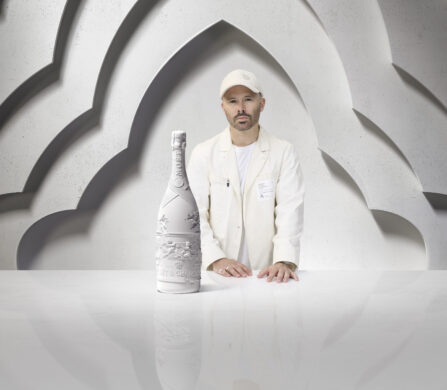Rewrite 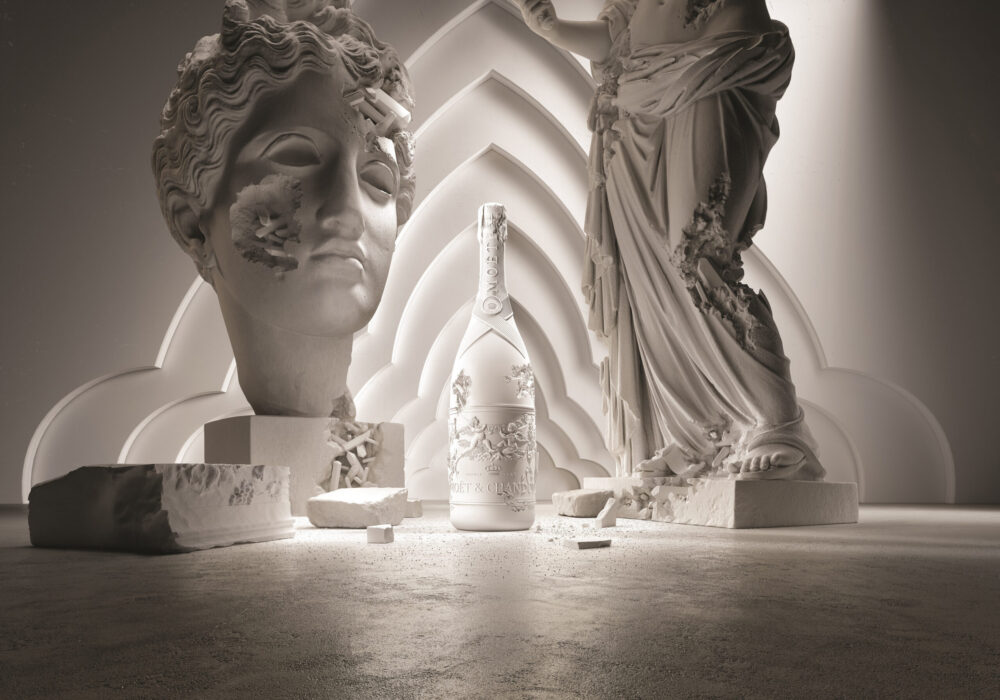
Marking 280 years of champagne mastery, Moët & Chandon has introduced Collection Impériale Création No. 1, a champagne that embodies the House’s rich heritage and forward-looking artistry. This new cuvée, crafted under the guidance of Cellar Master Benoît Gouez, is a harmonious blend of seven remarkable vintages spanning decades, highlighting the Maison’s concept of Haute Oenologie.
The introduction of Brut champagne in 1869 marked a pivotal moment for Moët & Chandon, departing from the sweeter styles of the era. It set the standard for what has become the global benchmark for champagne. As Gouez aptly states, “Brut was very new at that time… it has been part of the vision of Moët & Chandon to fruit the future and to start exploring a new category of champagne with less dosage, with less sugar, called brut that has become the dominant category.”
The name “Brut Impérial” is a nod to the brand’s historic ties with Napoleon Bonaparte, stemming from his friendship with Jean Moët. “At the occasion of the centenary of the birth of Napoleon, they decided to name their new baby, apparently as a tribute to the friendship between Jean Moët and Napoleon,” reflects Gouez.
Brut nature at its core, Création No. 1 reveals the purity of its flavours — vivid freshness, layered complexity, and a refined balance between youthful energy and seasoned elegance. Each vintage in the blend was meticulously aged, including the vibrant 2016 Grand Vintage, the powerful 2009, and the matured 2004, among others. Together, they form a champagne that redefines the boundaries of Moët & Chandon’s craft, achieving what Gouez describes as a creation “crafted for eternity.”
Beyond its storied history, Moët & Chandon’s unmatched scale and diversity set it apart. With 1,300 hectares of vineyards — nearly double that of its nearest competitor — the brand has access to grapes from around 280 of Champagne’s 319 villages. This expansive reach ensures the blending process captures the region’s essence. As Gouez puts it, “What makes Moët & Chandon so special is the size, the quality, and the diversity of our vineyards and grape supply. We have access to about 280 of them. So we cover 90% of the Champagne region.”
Further elevating this release is a collaboration with contemporary artist Daniel Arsham, who has reimagined the House’s legacy through a sculptural relief and 85 collectable bottles. His artwork will be housed in the historic Galerie Impériale, connecting the House’s long past to its innovative future. “In tasting Collection Impériale Création No. 1, I realised how nuanced the process of champagne-making is, and how the layering of different years and harvests resembles the art of composing a sculpture,” says Arsham.
The art of blending lies at the heart of the Brut Impérial’s identity. “Brut is really about integrating all the diversity of Champagne in one bottle,” Gouez explains. The meticulous combination of Pinot Noir, Meunier, and Chardonnay grapes defines the House’s signature style: “pre-driven, with a bright fruitiness, an elegant maturity made of very light blue, delicate, loads of maturity and most importantly, generosity.”
Positioning their champagnes as akin to haute couture, Moët & Chandon’s offerings, including Grand Vintage and Collection Impérial, represent varying expressions of the brand’s essence. “In fact, today, the way we present Impérial, Grand Vintage, and Collection Impérial is like the three levels of a fashion house,” notes Gouez.
Collection Impériale Création No. 1 sets the stage for future milestones, with new editions planned in the decades leading to the Maison’s 300th year. This debut creation celebrates Moët & Chandon’s vision of excellence while inviting the world to partake in its evolving story of time, taste, and artistry.
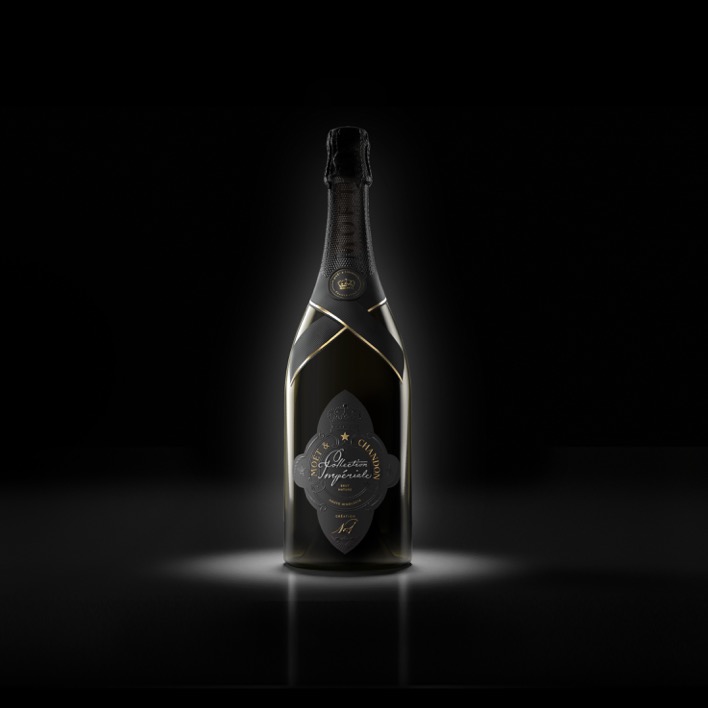
Find out more at moet.com.
photography. Moët & Chandon
words. Gennaro Costanzo
in HTML format, including tags, to make it appealing and easy to read for Japanese-speaking readers aged 20 to 40 interested in fashion. Organize the content with appropriate headings and subheadings (h1, h2, h3, h4, h5, h6), translating all text, including headings, into Japanese. Retain any existing
tags from

Marking 280 years of champagne mastery, Moët & Chandon has introduced Collection Impériale Création No. 1, a champagne that embodies the House’s rich heritage and forward-looking artistry. This new cuvée, crafted under the guidance of Cellar Master Benoît Gouez, is a harmonious blend of seven remarkable vintages spanning decades, highlighting the Maison’s concept of Haute Oenologie.
The introduction of Brut champagne in 1869 marked a pivotal moment for Moët & Chandon, departing from the sweeter styles of the era. It set the standard for what has become the global benchmark for champagne. As Gouez aptly states, “Brut was very new at that time… it has been part of the vision of Moët & Chandon to fruit the future and to start exploring a new category of champagne with less dosage, with less sugar, called brut that has become the dominant category.”
The name “Brut Impérial” is a nod to the brand’s historic ties with Napoleon Bonaparte, stemming from his friendship with Jean Moët. “At the occasion of the centenary of the birth of Napoleon, they decided to name their new baby, apparently as a tribute to the friendship between Jean Moët and Napoleon,” reflects Gouez.
Brut nature at its core, Création No. 1 reveals the purity of its flavours — vivid freshness, layered complexity, and a refined balance between youthful energy and seasoned elegance. Each vintage in the blend was meticulously aged, including the vibrant 2016 Grand Vintage, the powerful 2009, and the matured 2004, among others. Together, they form a champagne that redefines the boundaries of Moët & Chandon’s craft, achieving what Gouez describes as a creation “crafted for eternity.”
Beyond its storied history, Moët & Chandon’s unmatched scale and diversity set it apart. With 1,300 hectares of vineyards — nearly double that of its nearest competitor — the brand has access to grapes from around 280 of Champagne’s 319 villages. This expansive reach ensures the blending process captures the region’s essence. As Gouez puts it, “What makes Moët & Chandon so special is the size, the quality, and the diversity of our vineyards and grape supply. We have access to about 280 of them. So we cover 90% of the Champagne region.”
Further elevating this release is a collaboration with contemporary artist Daniel Arsham, who has reimagined the House’s legacy through a sculptural relief and 85 collectable bottles. His artwork will be housed in the historic Galerie Impériale, connecting the House’s long past to its innovative future. “In tasting Collection Impériale Création No. 1, I realised how nuanced the process of champagne-making is, and how the layering of different years and harvests resembles the art of composing a sculpture,” says Arsham.
The art of blending lies at the heart of the Brut Impérial’s identity. “Brut is really about integrating all the diversity of Champagne in one bottle,” Gouez explains. The meticulous combination of Pinot Noir, Meunier, and Chardonnay grapes defines the House’s signature style: “pre-driven, with a bright fruitiness, an elegant maturity made of very light blue, delicate, loads of maturity and most importantly, generosity.”
Positioning their champagnes as akin to haute couture, Moët & Chandon’s offerings, including Grand Vintage and Collection Impérial, represent varying expressions of the brand’s essence. “In fact, today, the way we present Impérial, Grand Vintage, and Collection Impérial is like the three levels of a fashion house,” notes Gouez.
Collection Impériale Création No. 1 sets the stage for future milestones, with new editions planned in the decades leading to the Maison’s 300th year. This debut creation celebrates Moët & Chandon’s vision of excellence while inviting the world to partake in its evolving story of time, taste, and artistry.

Find out more at moet.com.
photography. Moët & Chandon
words. Gennaro Costanzo
and integrate them seamlessly into the new content without adding new tags. Ensure the new content is fashion-related, written entirely in Japanese, and approximately 1500 words. Conclude with a “結論” section and a well-formatted “よくある質問” section. Avoid including an introduction or a note explaining the process.
